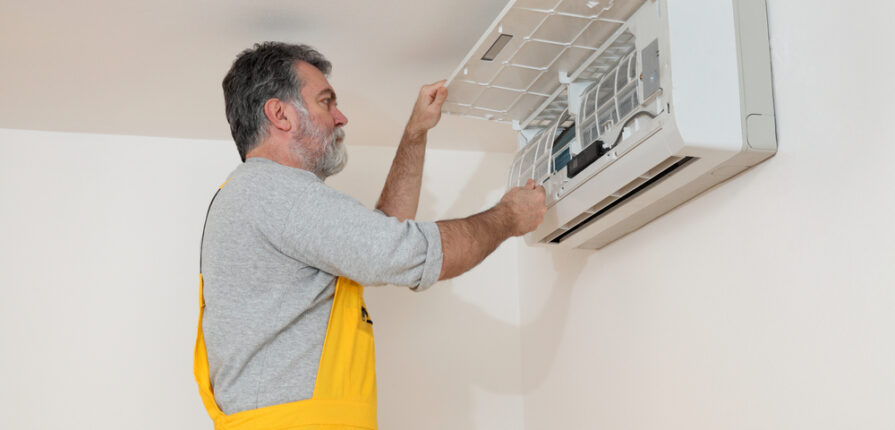Musty Smells
Musty smells are caused due to several factors and can be eliminated with the help of professional cleaning services.However, if you’ve noticed an unpleasant, musty smell coming from your air conditioner, it could be an indication that mold or mildew is growing somewhere inside the unit. This is not a problem to put off or ignore as contaminants in your air conditioner can lead to poor air quality, and health problems for your household.
Five Reasons Why Your AC Smells Musty
1. The Drain Pan is Full
Because your AC unit removes humid air from your home, it causes water droplets to fall into the drip or drain pan. This part of your HVAC system endures normal wear and tear, which means its functionality will deteriorate over time.
An ineffective drip pan will accumulate mold, which causes the smell in our home when the unit is running. Your local HVAC technician can replace it with a new one to remove the odor.
Where To Look: The drip pan is located directly underneath your system’s evaporator coils.
2. Frozen Evaporator Coils
Your air conditioner absorbs warm indoor air, removes the humidity while cooling it, and cycles the air back through return vents. Unobstructed airflow is essential for this process, so air filters must be clean.
Dirt and debris will block airflow, which causes water droplets from the humid indoor air to build upon the evaporator coils. These water drops will freeze as the AC unit’s refrigerant cools the air. Your HVAC technician will need to let the condenser coil thaw and change the filters to restore maximum airflow.
Where To Look: The evaporator coils are located inside or near the air handler, where the blower fan is in your unit.
3. Excess Moisture In Ducts Or Vents
When excess moisture accumulates inside air ducts and vents, it’s caused by high humidity levels or a drainage leak. If you smell something musty as soon as you turn on the AC unit, there’s a chance that mold and mildew have made their way into your ductwork.
Mold exposure can cause upper respiratory health issues, so call a professional HVAC technician as soon as possible. Your ducts and vents will need to perform duct cleaning and repairs to remove the musty odors for good.
Where To Look: Your ducts are attached to the vents in your home. Some ductwork may be in the ceiling or in a crawlspace, which means a professional will need to access it to ensure the mold issue isn’t extensive.

4. Blocked Condensate Line
The unit’s condensate line is a small pipe, typically made of PVC, located next to the condenser unit. The condenser unit is the part of your air conditioning unit located outside of your home. Its job is to drain water from the drip pan into your landscaping or storm drain.
It’s also one of the top locations for mold, mildew, and sludge to build up because of its small size. This leads to clogs, and of course, musty odors in your home.
To Look: The condensate drain line is a small pipe that runs from your home interior to the outdoor portion of your unit.
5. Incorrect AC Size For Home
For your AC system to work correctly, it needs to be the correct size for your home. If it’s too large, the air gets cycled too quickly, leading to a lack of humidification and an increase in excess moisture. If it’s too small, it will turn on and off constantly, leading to premature failure.
Ask your HVAC technician to check if your air conditioning unit is the correct size. HVAC unit sizing is about more than your home’s square footage. Your service technician will also consider the number of people who live there, your home’s insulation type, and your needs based on your local climate.
Where To Look: Ask your service technician to evaluate your system.


